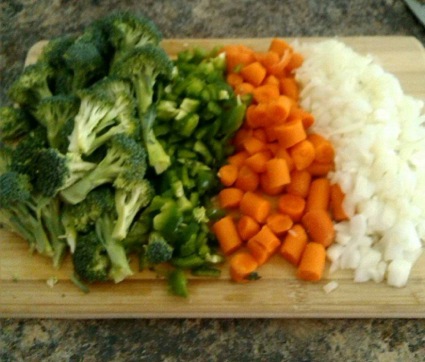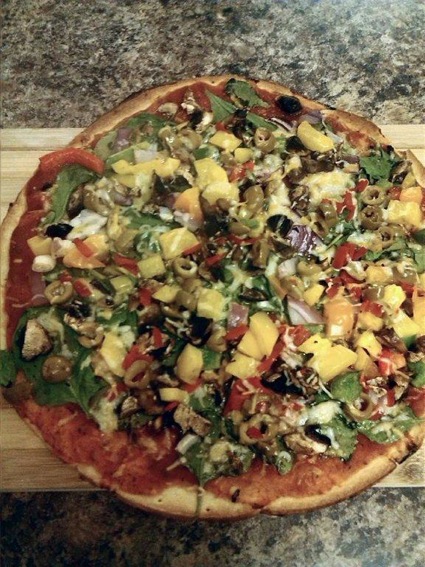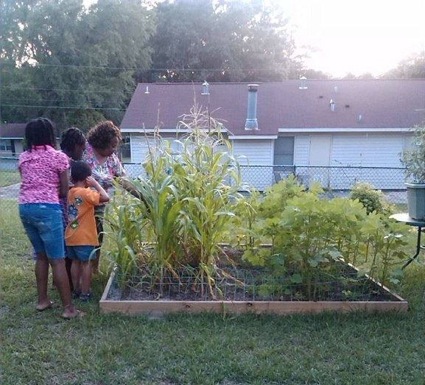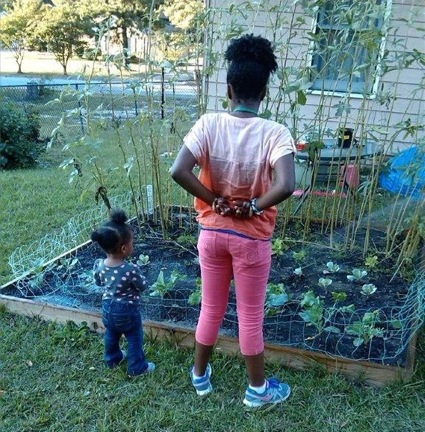By Carrice Quinnie
I became a vegetarian on my 36th birthday. I had cut out pork and red meat, months before, but when a close friend presented a PeTA video about the conditions of the various chicken factories and farms… from that point on I was vegetarian.
Becoming a vegetarian wasn’t hard for me. I was predominately a vegetable eater, anyway. Everyone knows I love a good “side dish”! Just give me a plate of sides and everything was copacetic! So, I wasn’t craving friend chicken or a big fat steak. I rarely ate them, anyway. I learned my body type when I was in college. I knew if I ate the entire table I would look like a table with an even broader back! I had my limits.
Early in 2014 I had gained weight from an injectable form of birth control. I was 35 and it was harder for me to loss weigh, my metabolism was even slower now. So I completely eliminated pork and red meat from my diet, solely for personal vanity. But after watching the PeTa video, I begin to read about different chemicals and hormones injected into the animals and I also did my own research and learned the deplorable conditions the animals were kept and the ways in which they were processed for human consumption. My views changed completely.
“That was it!” I decreed. “We all are going vegetarian now – including the girls!”
I discussed my decision with the two older girls (the 2 year old eats whatever you give her) and they were in shock… “Oh no, we can’t have Bar – b – que and ribs anymore! How will we survive?” Living in the south, Bar-b-que is fine dining and a part of every family celebration or event. Naturally, they accused me of “always reading about stuff and trying things on them.” So I hit them with my collection of videos. End of discussion…the girls were speechless.
I didn’t just cut them off from all of their favorite foods, but I slowly started to decrease the times we ate out, then decreased visits to local fast food chains and choose fresh alternative restaurants like Subway, Moe’s and my favorite Zoe’s Kitchen. We learned to make better food decisions. We are consciously aware of what we put in our bodies.
Gradually over time we saw the health benefits. My oldest daughter slimmed down, my middle daughter’s eczema cleared without prescription medication, and my 2 year olds’ continuous sinus problems reduced dramatically. (On a very personal note, when Aunt Flow only visits for a couple of days now and she causes no cramps and headaches during her stay. She comes and leaves quietly.)
I have now eliminated cow’s milk from our diet also. I only buy Almond milk. I never take them to the local favorite fast food restaurants. If we do eat out, we select places with a vegetarian menu. We buy food together, cook and prepare meals as a family. Now the girls even have their own personal preferences on organic and vegetarian brands. It’s a family affair!
Going vegetarian was a journey, but a necessary step in developing my girls into conscious eaters. If you want to take this journey with your family, here are some suggestions based on my experiences:
Discuss going vegetarian before you actually go vegetarian. Discuss the reasons for the change. Communicate the new benefits of the diet change. Make room for open discussions and make little compromises in the beginning to make all family members comfortable.
Make grocery shopping a family field trip. Read the labels together. If you can’t pronounce it don’t eat it. Any ingredient that sounds like it belongs in a chemistry lab, leave it in the store.
Let the kids help prepare as many meals as possible. When children help, they’re more excited and less resistant to try new fruits, vegetables and recipes.
Start a home garden. I personally, haven’t done this yet, but my mother started a garden last year and the girls love helping her and love eating the fruits of their labor.
I went vegetarian for vanity purposes in the beginning, but I wanted my children to adopt this lifestyle out of my love for them. I wanted them to care about their bodies and to be more aware of what they eat and put into their bodies. Ask questions. How was it cooked or made? Is it processed or manufactured food from a lab? It may be harder for some, but it’s a process. Eat consciously.
Love yourself more and make loving decisions for you and your family.
Lovingly,
Carrice






